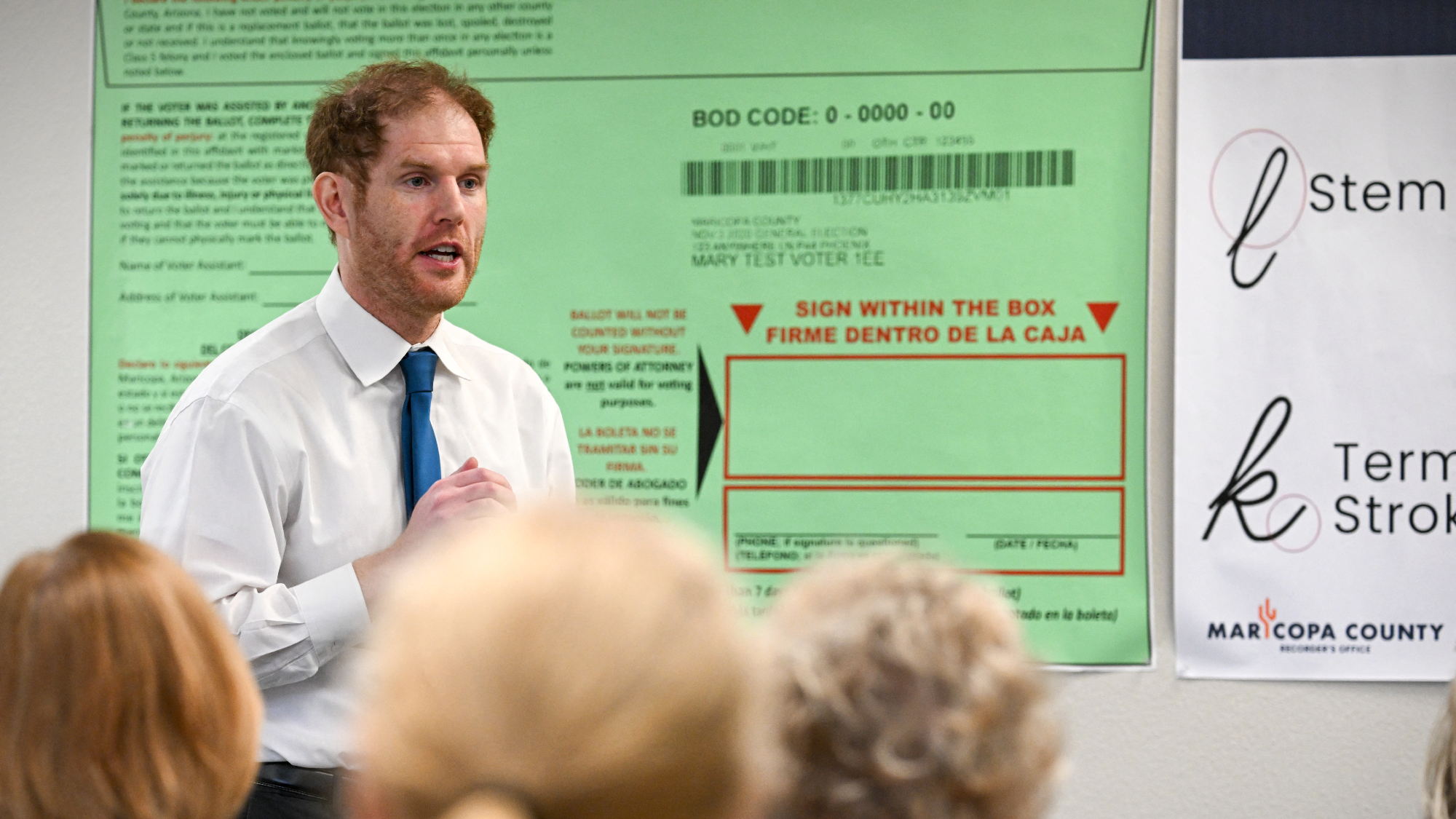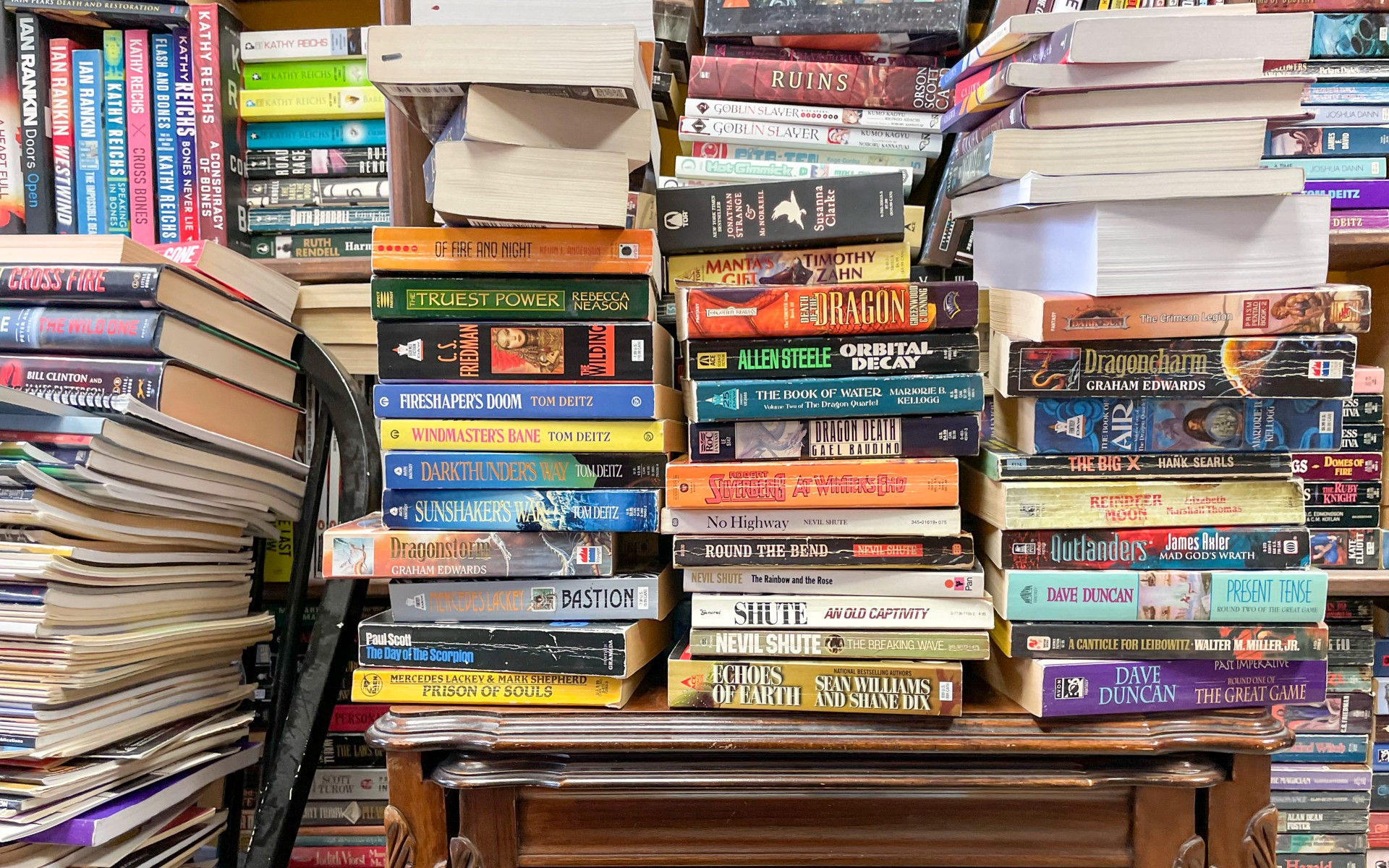Arizona official sues to bar 100K from local voting
A large number of residents who have not submitted citizenship documents might be prevented from voting in the battleground state's elections


A free daily email with the biggest news stories of the day – and the best features from TheWeek.com
You are now subscribed
Your newsletter sign-up was successful
What happened
Maricopa County Recorder Stephen Richer (R) asked the Arizona Supreme Court on Tuesday to prohibit nearly 100,000 longtime residents from voting in state and local elections this year, because the state has no evidence they submitted proof of citizenship as required under a 2004 state law. Secretary of State Adrian Fontes (D) argued these voters should be given full ballots, as they have for the past 20 years.
Who said what
"In all likelihood," the estimated 97,000 registrants across Arizona who have not submitted proof of citizenship are "almost all U.S. citizens," Richer (pictured above) said on X. Those voters all first obtained Arizona driver's licenses before 1996, and most of them "lean older and are Republicans," The Arizona Republic said. All of them "swore under the penalty of criminal charges" that they were citizens and have been on voter rolls "for years."
While this group is just a "small fragment" of Arizona's 4.1 million registered voters, they "could be decisive" in statewide races and ballot initiatives, The Washington Post said. They can vote in federal races, thanks to a 2013 U.S. Supreme Court ruling.
What next?
Richer asked the state high court to rule swiftly, as ballots are supposed to go out to military and overseas voters on Thursday. This mess is the result of policies "driven by conspiracy theories" about illegal voting, Fontes told reporters. It has "never been the case" in the U.S. or Arizona "that noncitizen voting has been anything other than vanishingly rare."
The Week
Escape your echo chamber. Get the facts behind the news, plus analysis from multiple perspectives.

Sign up for The Week's Free Newsletters
From our morning news briefing to a weekly Good News Newsletter, get the best of The Week delivered directly to your inbox.
From our morning news briefing to a weekly Good News Newsletter, get the best of The Week delivered directly to your inbox.
A free daily email with the biggest news stories of the day – and the best features from TheWeek.com
Rafi Schwartz has worked as a politics writer at The Week since 2022, where he covers elections, Congress and the White House. He was previously a contributing writer with Mic focusing largely on politics, a senior writer with Splinter News, a staff writer for Fusion's news lab, and the managing editor of Heeb Magazine, a Jewish life and culture publication. Rafi's work has appeared in Rolling Stone, GOOD and The Forward, among others.
-
 Where to go for the 2027 total solar eclipse
Where to go for the 2027 total solar eclipseThe Week Recommends Look to the skies in Egypt, Spain and Morocco
-
 The end of mass-market paperbacks
The end of mass-market paperbacksUnder the Radar The diminutive cheap books are phasing out of existence
-
 Political cartoons for February 22
Political cartoons for February 22Cartoons Sunday’s political cartoons include Black history month, bloodsuckers, and more
-
 ‘Poor time management isn’t just an inconvenience’
‘Poor time management isn’t just an inconvenience’Instant Opinion Opinion, comment and editorials of the day
-
 Trump links funding to name on Penn Station
Trump links funding to name on Penn StationSpeed Read Trump “can restart the funding with a snap of his fingers,” a Schumer insider said
-
 Trump reclassifies 50,000 federal jobs to ease firings
Trump reclassifies 50,000 federal jobs to ease firingsSpeed Read The rule strips longstanding job protections from federal workers
-
 Supreme Court upholds California gerrymander
Supreme Court upholds California gerrymanderSpeed Read The emergency docket order had no dissents from the court
-
 700 ICE agents exit Twin Cities amid legal chaos
700 ICE agents exit Twin Cities amid legal chaosSpeed Read More than 2,000 agents remain in the region
-
 Trump demands $1B from Harvard, deepening feud
Trump demands $1B from Harvard, deepening feudSpeed Read Trump has continually gone after the university during his second term
-
 House ends brief shutdown, tees up ICE showdown
House ends brief shutdown, tees up ICE showdownSpeed Read Numerous Democrats joined most Republicans in voting yes
-
 Trump’s Kennedy Center closure plan draws ire
Trump’s Kennedy Center closure plan draws ireSpeed Read Trump said he will close the center for two years for ‘renovations’
